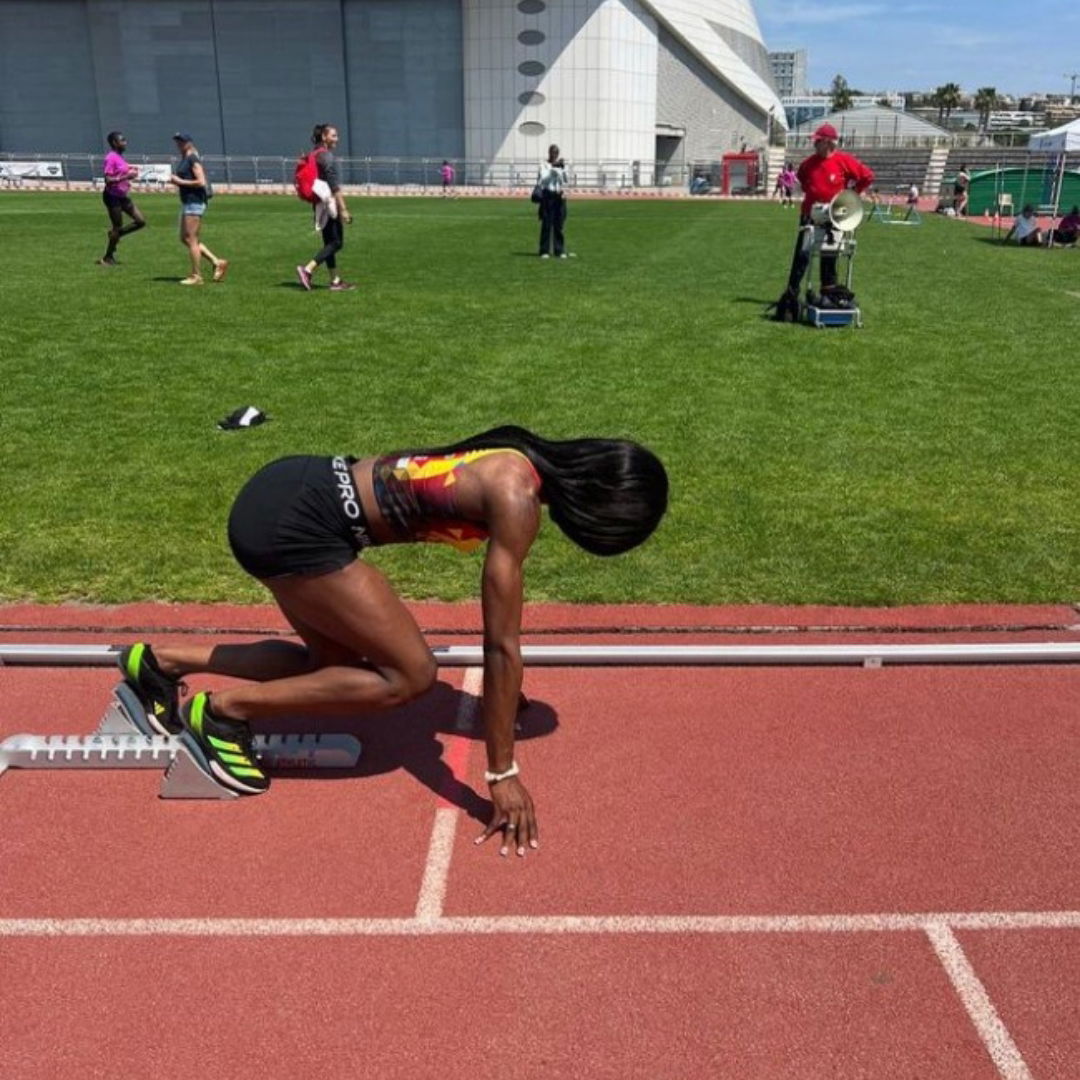

Halba Diouf was born in Senegal and arrived in France at the age of 4. She underwent sex change as an adult, and her gender transition was recognized by the French authorities. A 200-meter transgender runner, Diouf has been training hard to represent her country France at the Paris Olympics in 2024. But a ruling by the World Athletics this year has shattered all her dreams of competing in the Olympics. It devastated Diouf.
Watch What’s Trending Now!
Halba Diouf is speaking her heart out after the World Athletics banned all transgender women from participating in the female category at any international events. She believes she, and other transgender women, are being treated as insignificant.
ADVERTISEMENT
A new rule by World Athletics proves detrimental to French athlete
“I cannot understand this decision as transgender women have always been allowed to compete if their testosterone levels were below a certain threshold,” said Diouf to Reuters in an interview. The World Athletics has imposed tighter measures for testosterone restrictions for all athletes. The ruling is that any transgender athlete who has gone through male puberty will not be allowed to compete in female world-ranking competitions.

USA Today via Reuters
Jun 24, 2021; Eugene, OR, USA; Athing Mu and Nikki Hiltz lead a women’s 800m heat during the US Olympic Team Trials at Hayward Field. Mandatory Credit: Kirby Lee-USA TODAY Sports
Diouf continued, “The only safeguard transgender women have is their right to live as they wish and we are being refused that, we are being hounded… I feel marginalized because they are excluding me from competitions.” World Athletics President Sebastian Coe took this decision in March this year. There, he took this drastic measure to protect the female category of athletes.
ADVERTISEMENT
READ MORE – “I Am Personally Opposed”: 9x Olympic Gold Medalist Calls Out FINA for Their Ban on Transgender Swimmers
Top Stories
Greg Biffle’s $4M Worth Prized Possession Still Without a Buyer Leaves NASCAR Fans Heartbroken

LIV Golf Braces for Another Possible Exit in Wake of Brooks Koepka Departure

Sean Payton Announces Retirement Plans as Broncos HC Demands Improvement From Bo Nix & Co. Before Playoffs

Biff Poggi All But Confirms Bryce Underwood’s Michigan Future After Announcing His Own Departure

Roger Federer Draws Criticism from Swiss Government Chief for Tourism Boom in Country

Amanda Balionis Confirms New Relationship Ending Months of Rumors

Before the new rules came into force, only female transgender athletes with DSD (Differences in Sex Development) could take part in events like 400 meters and the mile. It was allowed if their natural plasma testosterone was below five nanomoles per liter. 100-meter and 200-meter athletes were cleared to compete. In the March hearing, they dropped the maximum amount of plasma testosterone levels to 2.5. Thus making it almost impossible for transgender athletes to participate in female competitions.
ADVERTISEMENT
Do scientists support the notion wholeheartedly?
Although World Athletics had their priorities straight on making this new rule, Dr. Joanna Harper from Loughborough University, who studies transgender athletes’ performance, argues otherwise. She believes that the necessity to ban transgender athletes was a bit too far-fetched. One review in 2021 found that trans women’s muscle mass may remain high, but their oxygen-carrying protein in blood is comparable to cisgender women’s. More oxygen transport to muscles happens in men than in women. Thus, the solution isn’t as simple as banning transgender athletes from the women’s category, cause they are clearly also subpar physically to men’s categories.
Watch this story | Swimming Legend Michael Phelps’ Top 5 Iconic Career Races
ADVERTISEMENT
However, for now, Halba Diouf has to live with the fact that she may not be competing in next year’s Olympics, even though she “is a woman from a psychological, hormonal, and legal point of view”, as per her endocrinologist.
ADVERTISEMENT
ADVERTISEMENT
ADVERTISEMENT

